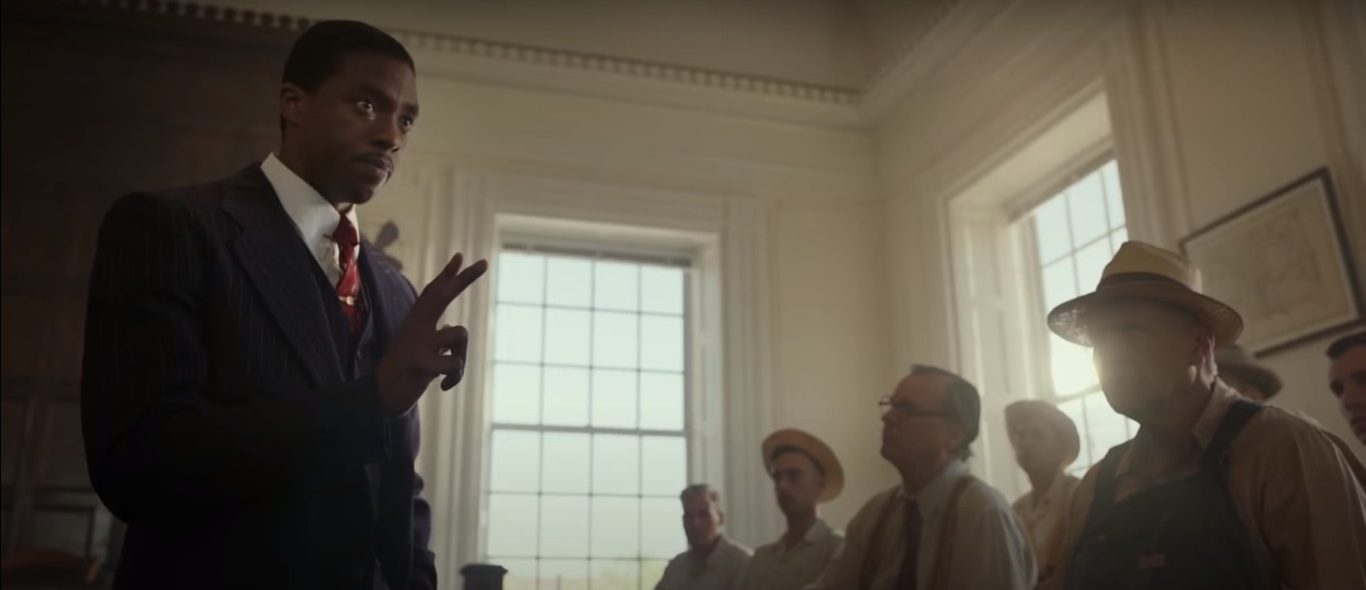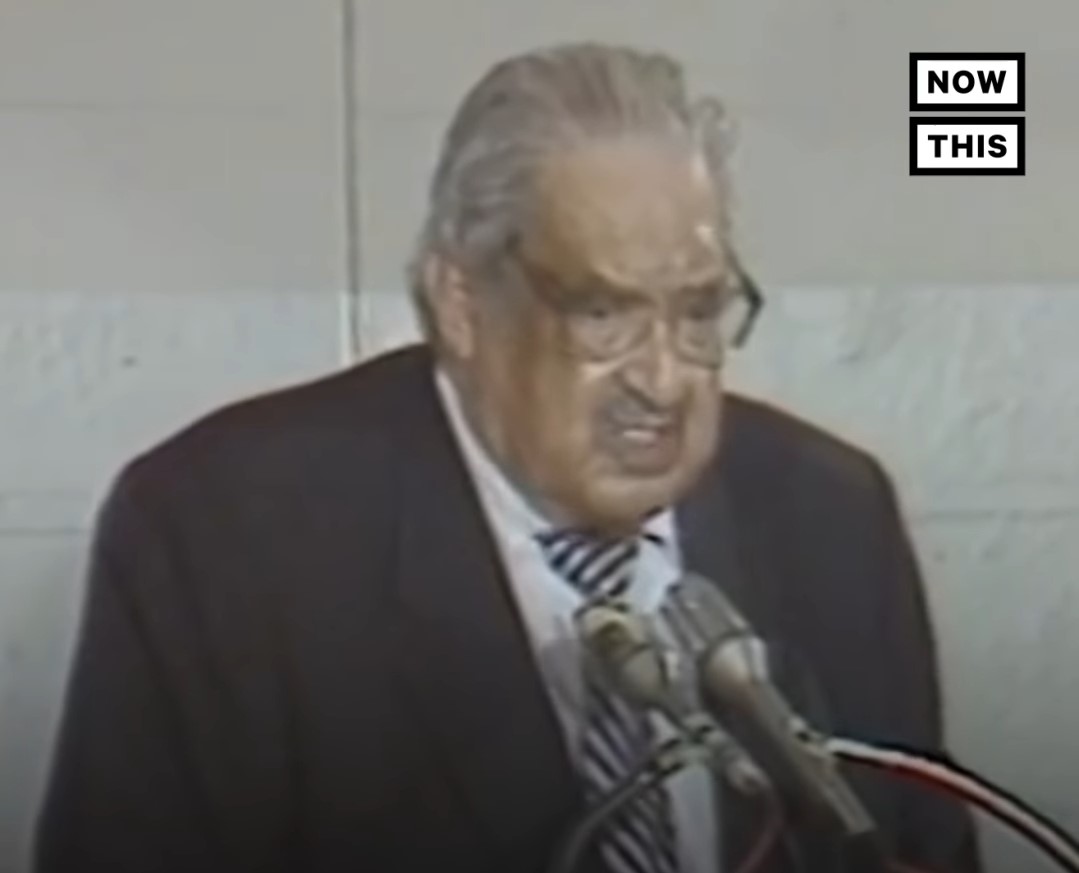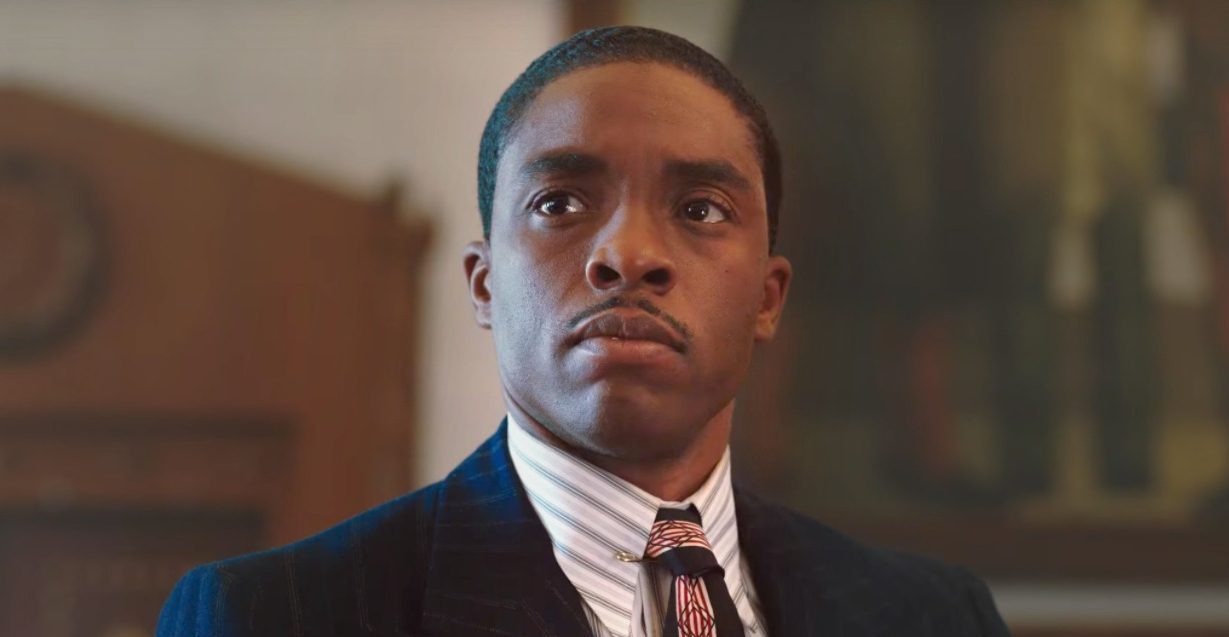‘Marshall’ is a legal drama based around a decisive and highly publicized case taken on by a young Black lawyer. The film is set in the 1940s and follows Thurgood Marshall, who travels the country, taking on cases to defend people of color who have been wrongly accused. The case the film centers on is a particularly convoluted one and involves a Black chauffeur accused of rape by his employer.
Apart from being a tense courtroom drama, the film also elucidates racial prejudices of the time and how the eponymous character battles the odds that are firmly stacked against him and his client. If you’re wondering whether this remarkable story actually occurred, we’re here with some interesting facts about ‘Marshall.’
Is Marshall Based on a True Story?
Yes, ‘Marshall’ is based on a true story. It is a biographical film written by Michael and Jacob Koskoff about the iconic lawyer and civil rights activist Thurgood Marshall who became the first African American Supreme Court Justice of the United States. The case portrayed in the film also represents the actual 1941 case of the State of Connecticut versus Joseph Spell.

The movie follows the real-life case quite faithfully, including the accusations made by Spell’s employer Eleanor Strubing, the amount of time the jury deliberated for (between 12-13 hours), and its eventual verdict. In fact, apart from the central characters of Marshall, Spell, and Strubing, many of the film’s supporting characters are also closely based on their real-life counterparts, including the African American author and activist Langston Hughes, the lawyer who was brought in as Spell’s attorney, Sam Friedman, and the lead prosecutor on the case — Lorin Willis.
Despite Marshall having a long and historic career afterward, the film attempts to use this case, which is one of his earlier cases as part of the NAACP, to profile the man and give audiences a glimpse into his defiant personality. A scene showing him drinking from a fountain with a sign above it that says “Whites Only” seemingly attempts to depict this side of him. As a Supreme Court Justice, he famously (and controversially, at the time) denounced the framers of the constitution during the bicentennial celebrations in 1987 for the ”perpetuation of slavery” and disenfranchisement of women.
Marshall also fought an astounding number of cases during his long and illustrious career, many as part of the NAACP, which involved traveling to various parts of the country to fight cases for wrongfully accused people of color. He also founded the NAACP Legal Defense and Education Fund as a separate legal entity in 1940, which focussed on the civil rights of African Americans and is considered to have inspired other similar organizations to be set up to safeguard the rights of women, Asian-Americans, and Latinos. One of the most famous cases he is known for presenting in the Supreme Court is perhaps the case of Brown versus Board of Education, which centered on racial segregation in public schools and resulted in a landmark verdict that marked state-established laws for racial segregation in public schools as unconstitutional.

‘Marshall,’ therefore, is strongly rooted in history and lives up to its biographical nature. To attempt to faithfully encompass a career as long and impactful as Thurgood Marshall’s into a single movie would be near impossible, and the filmmakers therefore likely use one particular, exceptionally scandalous case to try and present the man’s demeanor and character, as well as present a commentary on the times in which he spent the early days of his career.
Read More: Where Was Marshall Filmed?


You must be logged in to post a comment.